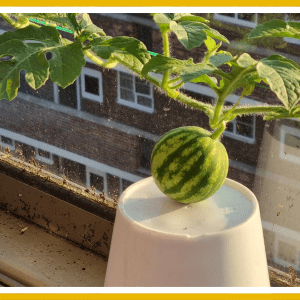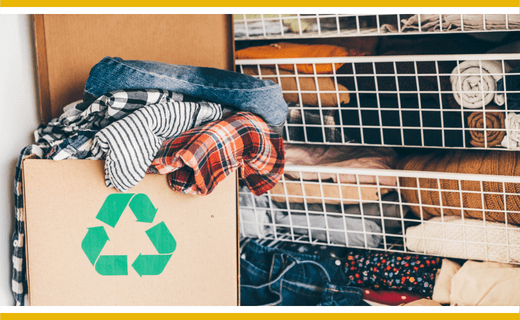18 October 2022
To mark Recycle Week, which kicked off on 17 October, we’re looking at how small changes can be made in your home to help save money and the environment.
We’ve asked FirstPort colleagues and residents to let us know their best eco-friendly life hacks.
- Banana skin fertilizer. You can make great plant fertiliser with a banana skin. A FirstPort colleague explains that all you need to do is place the banana skin in a jar fully covered in water overnight and it’s ready to be used on the plants the next morning. For even better results, leave the banana skin in the jar of water for 1-2 weeks before using it as fertiliser. And if you don’t want to waste the banana skin afterwards, it can be added to compost.
- Water butts. Collecting rainwater is a brilliant way to save water and money. Tembani Court in Devon said the delivery of two water butts to their retirement development was so successful that the development’s gardening club purchased an additional two more. Using water butts to collect rainwater reduces your carbon footprint and is healthier for your plants than standard tap water.
- Up-cycle and donate furniture. FirstPort Development Manager Clay Godden makes sure any unwanted furniture at the development is appropriately recycled. This could involve donating the furniture to a local charity or art project or taking on his own development up-cycling project to improve and bring any unwanted furniture back to life.
- Make your own cleaning products. You can also try making your own cleaning products – from washing up liquid, to multi-purpose cleaner, there’s plenty of products to experiment with. The most well-known ingredients for multi-purpose cleaner include a mix of baking soda, hot water, lemon, and distilled white vinegar.

- Prevent food waste. From storing your onions in nylon tights and placing in a cool, dry and dark cupboard or pantry, to wrapping your lettuce in a tea towel to prevent moisture and keep it fresh, there are plenty of simple tricks to help avoid food waste in your home. If you have the time and the space, why not try to regrow your kitchen scraps? Lettuce, celery, bean sprouts, and even tomatoes, are just some of the foods that you can replant with the scraps you’d usually throw in the bin! Not only will this save you money, but it also minimises food waste. FirstPort colleague Daniel Thompson managed to grow a watermelon from the seeds he got from the fruit he bought in the supermarket.
- Ditch plastic. Consider areas where you can replace single-use products with reusable products. For instance, replacing cling film with beeswax food wraps that can be washed and reused.
- Recycle clothing. FirstPort resident Sue Baker suggests recycling and buying second-hand clothing. She said: “Apart from food and personal items, most stuff is purchased from charity shops and return stuff in kind when finished.”
Christian Phipps, Sustainability Manager at FirstPort, said:
“It’s great to see our residents and colleagues getting involved in enhancing the environment we live in.
No matter how big or small these changes are, it all helps.
“For example, we’ve been working with Ground Control to bring water butts to several FirstPort developments. They’re a fantastic recycling resource and it’s brilliant to find out how much colleagues and residents are benefiting from them.
“At FirstPort, we are dedicated to taking steps to protect our planet and make our living environments more sustainable. We’re always open to finding out new ways to help and I’d always encourage our residents and colleagues to come forward with ideas.”
Recycle Week – organised by campaign group WRAP – runs from 17-23 October 2022. Find out how you can get involved here: https://wrap.org.uk/taking-action/citizen-behaviour-change/recycle-now/recycle-week



